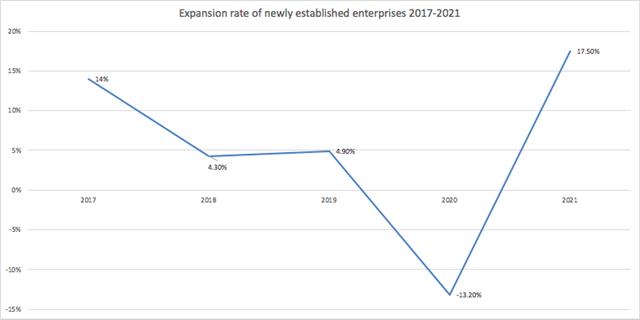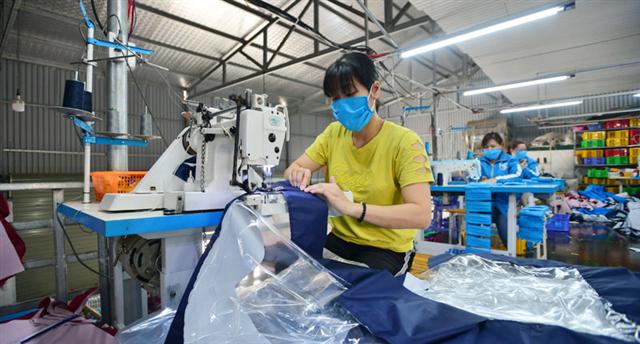Vietnam new business creation expands at record rate in Jan-Apr
Vietnam new business creation expands at record rate in Jan-Apr
The growing number of newly established enterprises shows the local economy is firmly on the recovery track, being an attractive destination for businesses.
The number of newly established enterprises in the first four months of 2021 rose by a record rate of 17% year-on-year to nearly 44,200, according to the Business Registry Agency.

Data: GSO. Chart: Hai Yen
|
Such figure remained in stark contrast to a contraction of over 13% in the same period of last year, which the agency noted as an “encouraging sign” for the economy.
Wholesale, retail, and automobile repair made up the highest number of new enterprises with around 14,700, followed by construction (5,740) and manufacturing and processing (5,540).
Total registered capital added to the economy was estimated at around VND1,420 trillion (US$61.88 billion), representing an increase of 26% year-on-year, of which, the capital from new enterprises accounted for nearly VND628 trillion (US$27.36 billion), the highest in a four-month period.
“The growing number of newly established enterprises shows the economy is firmly on the recovery track and also the confidence of the business community towards the economic outlook,” the Business Registry Agency noted in a report.

A garment factory in Dong Anh district, Hanoi. Photo: Chien Cong
|
Meanwhile, the number of enterprises withdrawing from the market continued its upward trend, especially micro and small ones, which indicates the lingering impacts of the pandemic on the local economy.
During the four-month period, around 51,500 enterprises exited the market, with 28,350 temporarily suspending operation and other 16,400 on the process of dissolution.
The majority of those leaving the market operate on fields of logistics, healthcare, education, real estate and agriculture.
The report also revealed up to 91% of such enterprises have an average registered capital of below VND10 billion (US$436,000) and less than five years of operation.
The agency suggested these are the most vulnerable subjects under the pandemic, for which most were forced to shut down in short-term to wait for government’s supporting policies or new business opportunities before deciding on the next step.


























